
Riley Bove, MD, MS, associate professor of neurology at the University of California San Francisco, shares her personal view on National Women’s Physician’s and why it’s important for clinicians and patients in the field.
Associate Professor of Neurology, UCSF Weill Institute for Neurosciences

Riley Bove, MD, MS, associate professor of neurology at the University of California San Francisco, shares her personal view on National Women’s Physician’s and why it’s important for clinicians and patients in the field.
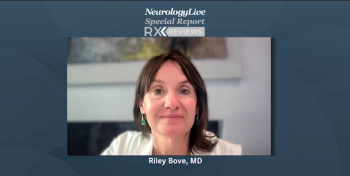
In this final episode, Riley Bove, MD, considers the next phase of MS research, emphasizing the need for innovative trial designs to address sequencing, discontinuation, and subgroup-specific treatment strategies.

In this clip, a multiple sclerosis expert reflects on how ofatumumab’s role has expanded since FDA approval in 2020, from first-line use to special populations, and what this means for daily practice.

Riley Bove, MD, an associate professor of neurology at UCSF, breaks down the ARTIOS phase 3b trial results, highlighting the exceptionally low relapse rates, MRI outcomes, and safety findings in patients switching therapies.

In episode 1, Bove explores how ofatumumab, a B-cell–depleting therapy, stands apart from fingolimod and fumarates, and why its mechanism may offer distinct treatment advantages.
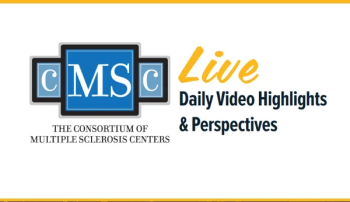
Host Jeffrey Wilken, PhD, chats with Riley Bove, MD, about the third day of the 2025 CMSC Annual Meeting in Phoenix, Arizona.
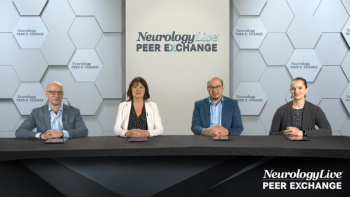
Ahmed Obeidat, MD, PhD, Riley Bove, MD, Stephen Krieger, MD, and Erin Longbrake, MD, PhD, share perspectives on the future of MS care, the importance of vigilance in lab testing, and why patients may need reassurance about the potential for disease control with currently available therapies.

Ahmed Obeidat, MD, PhD, Riley Bove, MD, Stephen Krieger, MD, and Erin Longbrake, MD, PhD, discuss the need for biomarkers that can help guide the optimal dosing for the use of anti-CD20 therapies in a precision fashion.

Ahmed Obeidat, MD, PhD, Riley Bove, MD, Stephen Krieger, MD, and Erin Longbrake, MD, PhD, discuss the utility of real-world data, particularly when it comes to understanding subtle differences between agents from both a safety and efficacy perspective.

Ahmed Obeidat, MD, PhD, Riley Bove, MD, Stephen Krieger, MD, and Erin Longbrake, MD, PhD, discuss emerging the practical implications of long-term data for anti-CD20 agents.

Ahmed Obeidat, MD, PhD, and Riley Bove, MD, review strategies for how to make drug classes and the risks-benefits profiles of individual agents accessible to patients.

Ahmed Obeidat, MD, PhD, Riley Bove, MD, Stephen Krieger, MD, and Erin Longbrake, MD, PhD, review the benefits of exercise and physical activity in patients with MS. They also discuss strategies for talking to patients about the positive effects of lifestyle changes.

Ahmed Obeidat, MD, PhD, Riley Bove, MD, Stephen Krieger, MD, and Erin Longbrake, MD, PhD, talk about the importance of monitoring bladder dysfunction symptoms in MS care.

Ahmed Obeidat, MD, PhD, Riley Bove, MD, Stephen Krieger, MD, and Erin Longbrake, MD, PhD, review strategies for optimizing treatment of women with MS who are pregnant while minimizing risks. They also talk about evolving approaches to managing women who are breastfeeding.

Ahmed Obeidat, MD, PhD, Erin Longbrake, MD, PhD, Stephen Krieger, MD, and Riley Bove, MD, discuss differences in immunologic phenotypes across racial boundaries. They also discuss data showing that, despite these differences, response to high-efficacy agents appears to be consistent regardless of race.
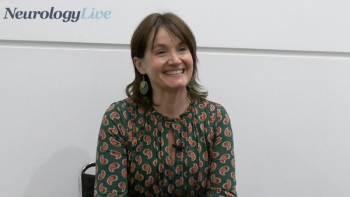
The associate professor of neurology at University of California, San Francisco talked about findings from an analysis that assessed the safety of ocrelizumab when administered close to pregnancy. [WATCH TIME: 5 minutes]

Ahmed Obeidat, MD, PhD, Erin Longbrake, MD, PhD, Stephen Krieger, MD, and Riley Bove, MD, discuss strategies for personalizing decisions and mitigating risks when stopping medication.

Ahmed Obeidat, MD, PhD, Riley Bove, MD, Stephen Krieger, MD, and Erin Longbrake, MD, PhD, discuss the definition of high-efficacy therapy and its place in MS care.

Ahmed Obeidat, MD, PhD, Riley Bove, MD, Stephen Krieger, MD, and Erin Longbrake, MD, PhD, consider how clinical trials can be enhanced to account for diverse patient populations.

Ahmed Obeidat, MD, PhD, Riley Bove, MD, Stephen Krieger, MD, and Erin Longbrake, MD, PhD, talk about the need for shared decision-making in MS care.

Ahmed Obeidat, MD, PhD, Riley Bove, MD, Stephen Krieger, MD, and Erin Longbrake, MD, PhD, discuss the nuances of treatment selection based on age of onset of MS.

Ahmed Obeidat, MD, PhD, Riley Bove, MD, Stephen Krieger, MD, and Erin Longbrake, MD, PhD, review the practical application of PIRA in clinical approaches to addressing inflammation and slowing the progression of MS.

Ahmed Obeidat, MD, PhD, Stephen Krieger, MD, and Erin Longbrake, MD, PhD, explore the concept of progression independent of relapse activity (PIRA) and the challenges of defining subtle accumulation of disability.

Ahmed Obeidat, MD, PhD, Stephen Krieger, MD, and Riley Bove, MD, discuss evolving understandings of continuum of MS and the mechanisms that cause relapse and the gradual accumulation of disability.
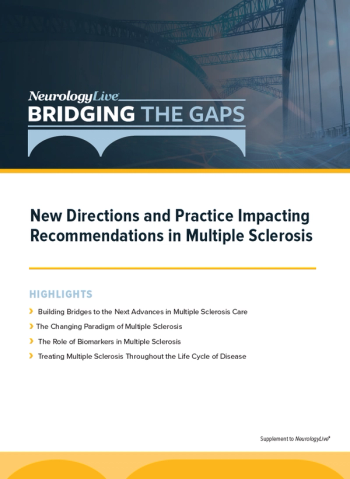
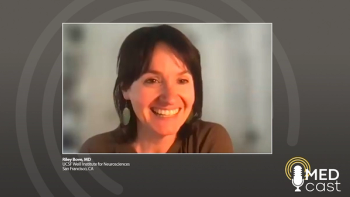
In this episode of MEDcast, Dr Krieger, Dr Brandstadter, and Dr Bove discuss MS care in patients who are considering pregnancy. They highlight treatment options, monitoring recommendations during and after pregnancy, as well as other crucial considerations when caring for patients with childbearing goals.
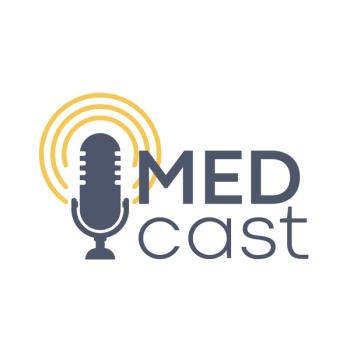
In this episode of MEDcast, Dr Krieger, Dr Brandstadter, and Dr Bove discuss MS care in patients who are considering pregnancy. They highlight treatment options, monitoring recommendations during and after pregnancy, as well as other crucial considerations when caring for patients with childbearing goals.
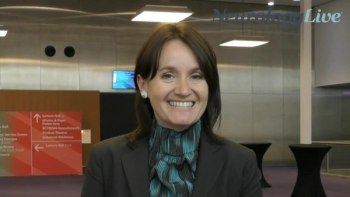
The associate professor of neurology at the University of California, San Francisco, discussed the key points from an oral presentation at ECTRIMS 2022 on understanding postpartum for patients with MS and NMOSD. [WATCH TIME: 4 minutes]
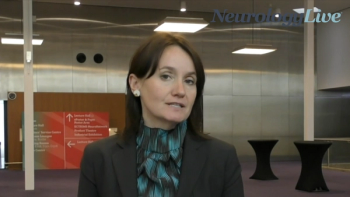
The associate professor of neurology at the University of California, San Francisco, discussed takeaways from an oral presentation at ECTRIMS 2022 on the use of anti-CD20 therapies in postpartum for patients with MS and NMOSD. [WATCH TIME: 5 minutes]
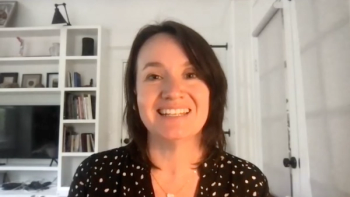
The neurologist at the University of California, San Francisco offered an overview of the State of the Science Summit that was held on September 28, 2022, featuring a panel of expert clinicians. [WATCH TIME: 7 minutes]

Published: October 4th 2025 | Updated:
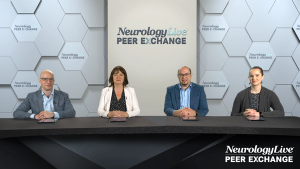
Published: April 22nd 2024 | Updated:

Published: October 3rd 2025 | Updated:

Published: October 5th 2025 | Updated:
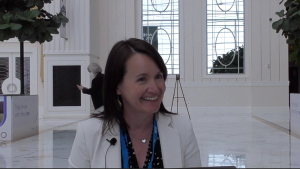
Published: June 2nd 2022 | Updated:
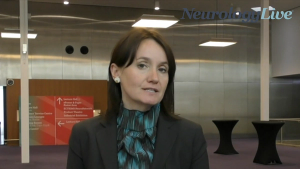
Published: November 2nd 2022 | Updated: